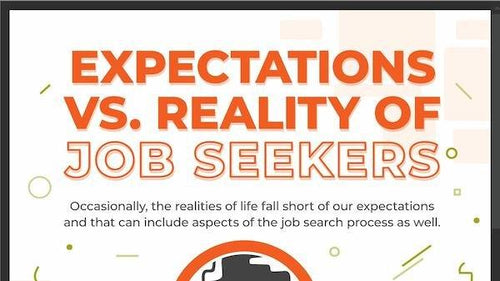
Has COVID Inspired You To Make A Career Change? Here Are Your Next Steps
First, congratulations to you! Making the decision to change careers is not an easy one for so many reasons. You’re leaving what you know to dare for something better.
There are many reasons behind wanting a career change. You might be looking for a way to fatten your wallet or reduce your stress. Maybe you’ve been stuck in a job that you hate. Possibly, you’ve felt bored or just plain frustrated from years of laboring in the same profession and crave a new calling.
The Covid-19 pandemic and its related remote working complications seem to have stoked people’s “Is this really what I want to do with my life?” despair. If you’ve been toying with the idea of a career change this past year, you are not alone.
According to a findcourses.co.uk survey, 35% of people are actively looking to change careers. (That’s more than one-third!) Interestingly, this itch for a change seems to have affected even those who are happy in their current roles with a remarkable 89% also contemplating a career change.
It’s an incredibly brave path you’re embarking on. To make the most of your qualifications and professional accomplishments, you’ll want to do some research and get your ducks in a row to maximize your chances of landing that new dream job.

This blog contains affiliate links, meaning I may receive a small commission (at no cost to you) if you subscribe or buy something through the links I share. I only share links to products or services that I use myself or absolutely love!
1 | Do Your Research
As a career changer, you should consider having a very targeted approach to your job search. Browsing job sites like LinkedIn or monster.com can help you hone in on companies, industries, and especially job skills. A read-through of posted job requirements can make any career changer’s heart sink and imposter syndrome take over.
Try not to despair. Carefully read through the lines of what they’re looking for and focus on transferable skills and relevant experience. You’re probably much more qualified than you realize. A good tip is to rewrite and even reorganize your resume in such a way so as to really make your transferable skills stand out.
At the very least, reading job descriptions is a good exercise for uncovering the skills you need to work on. In fact, the vast majority of survey respondents (83%) acknowledged that they need to learn something new in order to make a career change.
You may find yourself more marketable if you take a course specifically related to the skills employers are looking for in your chosen position. Even a refresher in basic communication training or spreadsheet software can work wonders for making you stand out from other candidates.
2 | Look Into Funding
In response to the pandemic, many governments have set up opportunities for training subsidies. In the United States, programs can be found at both the state and federal levels, so be sure to investigate all your options.
It’s worth taking some time to check out what might be available to you to help make the transition as smooth as possible. For example, there are funds for training in high-need sectors, assistance for child care, starting your own business, and scholarships and grants for continuing your education.
Some organizations may even offer opportunities for on-the-job training in an apprenticeship or internship position. If you’re coming from outside your target industry, these positions are a great way to get precious, job-relevant experience. You’ll also be able to study the industry, learn best practices and lingo, train on special software or tools, and create industry-specific contacts—all as an insider.
3 | Network, Network, Network
Networking is all about marketing yourself. Think about all the people you know—past work colleagues, suppliers, school friends, your kids’ friends’ parents, clients, and their friends—each one of them might be the source of a job lead for you. You’ll never know if you don’t ask them or inform them of your new path.
Your network is always important but in the case of a career change, your contact is also vouching for you and your continued success in a new career. Recruiters and hiring managers tend to prefer the least risky option. Your application will carry more weight if coming from a trusted source, regardless if you check all the qualification boxes.
Using your contacts to find or recommend you to a job is one of the most important activities you can do as part of your career change journey. If you’re not comfortable with approaching people and asking for help, maybe a course in interpersonal skills can give you the confidence boost you need and put yourself out there.
4 | Believe
Believe it is possible. It may take time for you to make the shift you’re after. There will be plenty of ups and downs along the way. Finding a mentor figure—someone who’s already made a career change—can help remind you it can happen. You absorb the positivity of their success and gain a valuable source for tips and inspiration.
You’re at the beginning of the pathway to a new career. It’s an incredibly courageous and satisfying pursuit you're embarking on! With some research, networking effort, and a lot of positivity, you can set yourself up for career change success.
Related Articles
-

10 LinkedIn Mistakes That Cost Job Seekers Interviews (How to Fix It)
Guest blogger outlines how to avoid these LinkedIn mistakes to drastically improve your chances of being noticed, whether you’re actively job hunting or just trying to grow your professional presence.
-

Guide To Choosing A Career In SaaS
Thinking about a career in SaaS? Guest blogger Jacob Wickett shares top roles, key skills, and how to break into this fast-growing industry.
-

Mastering the Modern Workplace: Essential Skills for Career Growth in the Age of AI
Guest blogger Sadie Smith shares a comprehensive guide to help professionals navigate unprecedented changes driven by technological advancement with confidence.
-

Navigating Your Career Path with a Family Nurse Practitioner Degree Program
Guest blogger Sadie Smith reveals how strategic planning in your healthcare career broadens your impact on patient care and community health.
-

Career Transitions: Navigating Your Path to Success in Healthcare and Beyond
Guest blogger Sadie Smith shares how to leverage your existing skills and experience while pursuing new career opportunities in healthcare and other industries.
-

Breaking Barriers: A Guide to Empowering Women in Manufacturing Leadership
Guest contributor Sadie Smith shares this comprehensive guide on how women can reshape the manufacturing industry landscape with actionable insights.
-

Navigating An Evolving Job Market With Strategies For Success
To thrive in a dynamic job market, you need to continuously adapt your job search strategies. Stay informed and flexible to position yourself for success.
-

4 Personal Assistant Interview Questions and Answers
Guest blogger Liza Griffen, co-founder of Tyler Griffen, equips you with a deep understanding of typical interview questions and practical answers to help you showcase your skills effectively whether you're aiming to impress in your first personal assistant role or looking to step up in your career.
-

Crack Your Dream Company Interview
Guest contributor Nandkishore Rathi shares practical tips, strategies, and insightful advice from career experts to help you shine during written and verbal interviews.
-

Exploring The Realities Of Job Hunting (Infographic)
Guest contributor Joseph Matalone delves into common expectations in job seeking and the contrasting realities.
-

How To Explore Careers With Assessment Tools
Career assessments are emerging as practical tools that provide a systematic framework for professionals undergoing career transitions.
-

Don't Panic: 15 Ways To Prepare For A Video Interview
Guest blogger Daniel Boyce with Aware Recruiter delves into 15 actionable steps to prepare you for a stellar video interview experience whether you're a seasoned professional or just stepping into the job market.
-

How To Showcase Transferable Skills And Your Value For A Career Transition
Recognizing the significance of transferable skills is key to successfully showcasing one's potential in the face of change.
-

5 Signs That A Company Values Employee Wellness And Safety
Guest blogger Sharon Feldman shares how asking questions about wellness and safety in your interview could give you insight into a company’s values.
-

Can An Employer Fire You For Being Sick?
Many employers can terminate an employee for falling sick frequently. Guest blogger Natalie Padilla shares all you need to know regarding being fired by an employer.
-

Tips On Building A Positive And Supportive Workplace
Guest blogger Adam Blacksmith shares how to embrace communication, celebrate diversity, and empower your team for success by fostering a positive and supportive workplace culture.
-

AI: Transforming Networking, Interviews, and Careers
Guest Author, Dean Fankhauiser. discusses how AI is revolutionizing networking, interviewing, career planning, and professional advancement.
-

Preparing for Different Interview Formats: Phone, Video, and In-Person
Interview Coach Ellie Hoekman shares specific preparation steps for phone, video, and in-person interviews.
-

Negotiating A Competitive Salary
Guest blogger Rohan Singh shares strategies for negotiating a fair salary that reflects your worth and fulfills your goals.
-

Can My Employer Ask Why I’m Taking A Sick Day?
Guest blogger Samantha Larson shares whether your employer has the right to ask you why you are sick and how much information they are entitled to when you take a sick day at work.
-

The Benefits of Coaching in the Workplace
Guest blogger, William Powell, shares some of the concrete examples of the benefits associated with employee coaching.
-

10 Facts & Stats About Sexual Harassment in the Workplace
Guest blogger Sharon Feldman shares how many people experience harassment every day, including at their place of work, to increase awareness.
-

The Ultimate Temping Guide for Beginners
Guest blogger Auria Heanley with Oriel Partners shares insight into what a temp job is and what to expect in order to make the most of a new job opportunity.
-

High Paying Career Paths After Learning Python
Guest blogger Rose Young with Codebasics.io shares some of the promising career paths you can explore after learning Python programming.
-

How To Ace Your Interview With A Staffing Agency
Guest blogger William Powell shares how to prepare adequately for an interview with a recruiting agency to increase your chances of landing your dream job.
-

How Do You Know When It's Time To Quit Your Job?
Guest blogger Katie Meyers shares when quitting your job is the right thing and how to go about it.
-

5 Things You Need To Know About Job Interviews To Succeed
Guest blogger Marcus Ralph shares 5 tips on what you can do before a job interview to be best prepared to make a solid first impression and land the job.
-

Know Your Worth and Add Tax: How To Effectively Negotiate Your Salary
Guest blogger Jeffrey Cassells with Shegerian Law advises that it's time to learn how to negotiate strategically and not settle for being underpaid, whether you're at your first or fifth job.





























